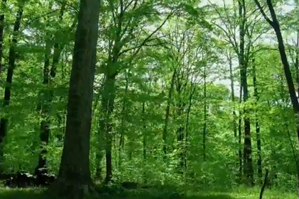Weekly Webcrawl: Sequestration edition

In recognition of sequestration–across-the-baord federal spending cuts that automatically take effect today–I’m dedicating this week’s webcrawl to the beauty of science.
First, watch this and swoon:
This video reminds me of two things:
- The world is a beautiful place that deserves our attention, exploration, and educated protection.
- Politics are a lot like the seasons, which wax and wane between periods of desolation and periods of abundance.
Sequestration will have a profound effect on science, cutting by billions of dollars the primary funding supply of the majority of research programs around the country. But, hopefully, this too will pass…?
In my blog post about sequestration a couple weeks ago, Northeastern professor Woody Kay said that science policy’s biggest problem is that politicians and scientists live in different time frames and use different languages. So, science communication becomes an integral piece of bridging the gap that has gotten us in this sorry situation. There were some great posts about this topic this week:
- For Scientists: this is where news comes from: My friend Jessica Stoller-Conrad blogs about the seemingly-mystifying process of getting your work recognized by popular media on Figure One.
- Out of the comfort zone and into the fire: Flame Challenge organizer Christine O’Connell describes her first experiences learning how to communicate science to a broad audience, while at the same time issuing a plea to scientists to describe the concept of time to 11 year olds (or, perhaps, politicians?) in 300 words or less.
- We’re all Jonah Lehrer except me: Ruined science writer Jonah Leherer’s biggest crime was telling stories. But is this something all science writers are guilty of on some level? How do we ensure our narratives don’t bely scientific truth?
- Annals of amplification in journalism: A continuation of the above point, how do we ensure that media don’t run wild with scientific results, delivering to the masses false fear of things like cell phone use and egg yolks?
- The adventures of Dr. Watson, science writer: Last Word on Nothing blogger Michelle Nijhuis reminds us of both the wonder of Holmes and the challenges Watson had in dealing with him.
Speaking of wonder, isn’t that what it’s all about, this science thing? A deep curiosity of the world and universe?
Maybe that’s not enough to warrant big bucks from taxpayers, but with sequestration, what do we risk forgoing? Some great scientific discoveries and research pursuits reported this week:
- Invisible motion detector shows a sleeping baby’s pulse just by looking at her through a video camera
- Lost continent discovered under the Indian Ocean
- 5 psychiatric disorders share genetic risk factors
- Tongue eating fish microbe isn’t as bad as it sounds
- Do rat brains linked via wires foreshadow a future in which keyboards and telephones are no longer required for communication?
- Autopsy of a dead social network
And what message do we send to the next generation of scientists, thinkers, and deciders about the value of science by cutting our commitment to it? Do we inadvertantly squelch their curiosity and inspiration?
Today is a sad day for science (and many other important national programs), but perhaps it’s just a wintry stop on our journey toward some enduring spring. I think we all have a duty to get the train rolling again.





